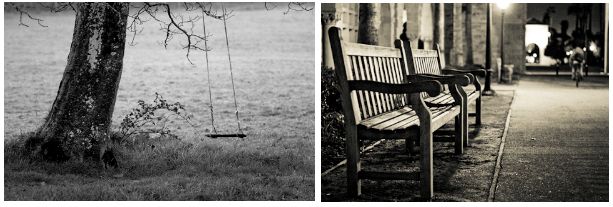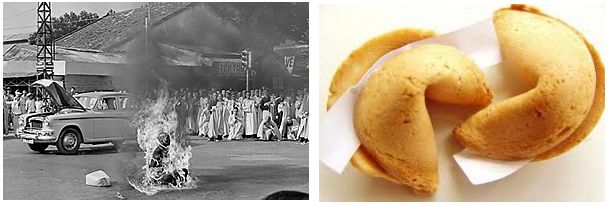Scan barcode
A review by nataliya_x
Zazen by Vanessa Veselka
4.0
"Sometimes you just need to be someone else, someone who doesn’t care about anything at all. I know I do. I want emptiness but I can’t have it."

I read this book because of the amazing review Kris wrote, and she truly has an impeccable taste in books. The memory of her praise of this slim volume was what kept me from giving up through the first third of the story, until finally the book gripped my heart and insisted that I continue with it, until I finally was powerless to put it down.
"Lately, I’ve become afraid that the feeling I used to feel, like something good was waiting, is what people mean when they say “young” and that it is nothing more than a chemical associated with a metabolic process and not anything real at all."The core of this book hinges not on the plot but on the metaphor-laden emotions and feelings - desperate and overpowering ones. It's very internally oriented - which eventually becomes its strongest point.
“I wish it were enough just to be alive.”Narrated by a character who recently has gone through a significant (even if not much alluded to) mental breakdown and is in the utmost fragile mental state ("my wiring was shot and I cried all the time"), Zazen is filled to the brim with trembling tense panic, raw staccato emotions, disdain of conformity and nonconformity alike, loss and isolation and alienation, suffocating fear and anger, deep intense longing for something that at last can be real, and overpowering desire to run away from it all - to the place where something will somehow be better.
I knew what she meant more than anything I had ever known.
"I’d like to see something happen. Something big that wasn’t scary, just beautiful. Some kind of wonderful surprise. Like how fireworks used to feel."Della, emotionally fragile paleontologist turned waitress at a vegan restaurant, is very isolated and quite misanthropic, secretly harboring a "hidden desire for things not to be fucked, to belong somewhere". A child of the radical revolutionary parents, she exists in a world of the contrasts and divides.

On one side there is the suffocating fakeness of the all-is-hunky-dory culture venerating mass consumerism, worshiping it in the box-mall-church. On another side, there is the counterculture of rejection and resistance, bordering on hatred and destruction. And somewhere - place them yourself - are those "so thoroughly anchored into some sort of pop culture aesthetic that nothing can knock me over or wash me away or make me hate everyone".
But is any of that *real* in a sense we perceive real? Real as in 'free from fake', free of the pre-packaged ready-to-consume one-size-fits-most roles and identities that are so easily doled out by the culture where patriotism and shopping are intertwined? Is is any wonder Della is angry and confused? Is it any wonder she feels lost? Is it any wonder she notices that "...Everyone had a pretty good reason to blow up a building. I agreed with most of them."?
"War A is going well and no longer a threat, small and mature. Like a bonsai. War B is in full flower. Its thin green shoots reaching across the ocean floor like fiber optic cable. Our only defense is attack."Is it any wonder she feels trapped in a world perpetually on a brink of war, where bombs go off, children die, and there are people who in protest set themselves on fire?
"And they were all like that, macrobiotic Belgian trust-fund junkies, park bench anarchists, mean white lesbians in canvas clothing and dreadlocks—each ready to denounce you as a cop at the slightest sign of dissent. My dirty little secret was that I only liked militants at a distance. Up close I couldn’t stand them. Their targets were always the same, a cow path from the cell to the Great Reactionary Dawn. I wanted something more creative than dead clerks."

A child of radicals, a sister of an activist, a friend (or at least an associate) of those who can be easily called domestic terrorists, Della strikes me as first of all a pacifist. She may be fascinated with bombs and self-immolation and such - but, after all, all she really wants is for "everything to be okay, everything to change, and no one to get hurt." And the world does not work that way, sadly.
"That’s the problem with symbolic gestures. People never take them far enough."And the world does not run on symbolic gestures only. But *real* gestures - Della eventually comes to see that they are not an alternative - not for her, at least.
--------------
The tense panic, the longing, the fear of passivity and fear of violence, the need for acceptance, the search for real identity - all those things screaming from the pages of this metaphor-laden book, and try as hard as I can I'm unable to stop thinking about it.
"I also knew what it was like to be somewhere foreign, waiting for the person you used to be to show up."I have spent a few days trying to come to terms with what I feel about this book. I've never really felt that lost or desperate or that lonely as Della does - so why did it ultimately begin to resonate with me this hard? Because it plays on our inner essential desire for things to be fine, for the world to be *real*, for love instead of hatred?
Maybe so. I don't know - maybe I need a few more years on my shoulders to understand everything that is going through my own head right now. What I do know is that this book still hasn't let me go - and for this I can give it 4.5 stars without much hesitation.
"Annette says I’m too hard on the world, that I only see one side.
Grace says I’m afraid of my own longing.
I looked around at the smoke and people. I couldn’t find any hate in me anywhere. The world is a violent child none of us will get to see grow up.
I decided to love it anyway."
——————
Recommended by: Kris